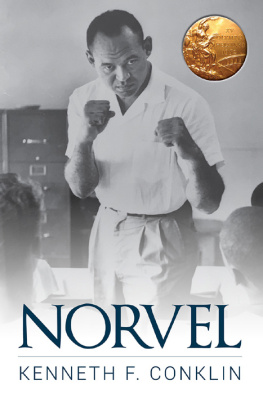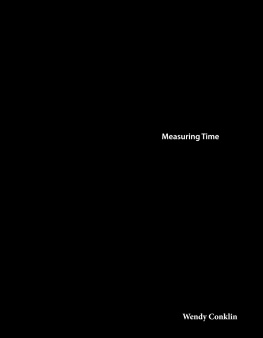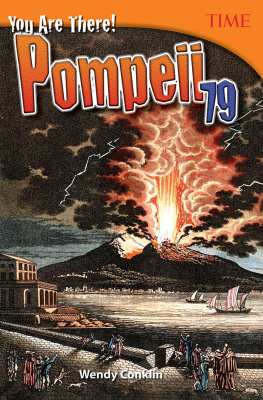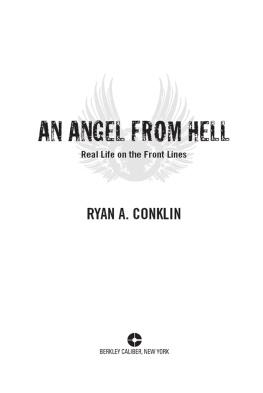Todd Conklin - Pre-Accident Investigations
Here you can read online Todd Conklin - Pre-Accident Investigations full text of the book (entire story) in english for free. Download pdf and epub, get meaning, cover and reviews about this ebook. year: 2012, publisher: Ashgate Publishing Limited, genre: Romance novel. Description of the work, (preface) as well as reviews are available. Best literature library LitArk.com created for fans of good reading and offers a wide selection of genres:
Romance novel
Science fiction
Adventure
Detective
Science
History
Home and family
Prose
Art
Politics
Computer
Non-fiction
Religion
Business
Children
Humor
Choose a favorite category and find really read worthwhile books. Enjoy immersion in the world of imagination, feel the emotions of the characters or learn something new for yourself, make an fascinating discovery.

- Book:Pre-Accident Investigations
- Author:
- Publisher:Ashgate Publishing Limited
- Genre:
- Year:2012
- Rating:4 / 5
- Favourites:Add to favourites
- Your mark:
- 80
- 1
- 2
- 3
- 4
- 5
Pre-Accident Investigations: summary, description and annotation
We offer to read an annotation, description, summary or preface (depends on what the author of the book "Pre-Accident Investigations" wrote himself). If you haven't found the necessary information about the book — write in the comments, we will try to find it.
Pre-Accident Investigations — read online for free the complete book (whole text) full work
Below is the text of the book, divided by pages. System saving the place of the last page read, allows you to conveniently read the book "Pre-Accident Investigations" online for free, without having to search again every time where you left off. Put a bookmark, and you can go to the page where you finished reading at any time.
Font size:
Interval:
Bookmark:
Pre-Accident Investigations
To everyone who has ever asked how instead of why.
An Introduction to Organizational Safety
TODD CONKLIN
Los Alamos National Laboratory, USA
ASHGATE
Todd Conklin 2012
All rights reserved. No part of this publication may be reproduced, stored in a retrieval system or transmitted in any form or by any means, electronic, mechanical, photocopying, recording or otherwise without the prior permission of the publisher.
Published by
Ashgate Publishing Limited
Wey Court East
Union Road
Farnham
Surrey
GU9 7PT
England
Ashgate Publishing Company
Suite 420
101 Cherry Street
Burlington
VT 05401-4405
USA
www.gowerpublishing.com
Todd Conklin has asserted his moral right under the Copyright, Designs and Patents Act, 1988, to be identified as the author of this work.
British Library Cataloguing in Publication Data
Conklin, Todd.
Pre-accident investigations : an introduction to
organizational safety.
1. Industrial safety.
I. Title
658.38-dc23
ISBN: 978-1-4094-4783-2 (hbk)
ISBN: 978-1-4094-4782-5 (pbk)
ISBN: 978-1-4094-4784-9 (ebk-PDF)
ISBN: 978-1-4094-8354-0 (ebk-ePUB)
Library of Congress Cataloging-in-Publication Data
Conklin, Todd.
Pre-accident investigations : an introduction to organizational safety / by Todd Conklin.
p. cm.
Includes bibliographical references and index.
ISBN 978-1-4094-4783-2 (hardback) -- ISBN 978-1-4094-4782-5 (pbk) -
ISBN 978-1-4094-4784-9 (ebook) 1. Industrial safety. I. Title.
T55.C645 2012
363.1065--dc23
2012004878

Printed and bound in Great Britain by the MPG Books Group, UK
ATIS | Automated Traffic Information System Sierra |
CQD | Antiquated nautical attention all stations distress or danger call |
DFEO | Deviation From Expected Outcome |
HAZCOM | Hazard Communication |
HR | Human Resources |
JHA | Job Hazard Analysis |
JSA | Job Safety Analysis |
LANL | Los Alamos National Labortatory |
LOTO | Lock Out Tag Out |
MPH | Miles Per Hour |
MYG | Titanic call letters |
OSHA | Occupational Safety and Health Administration |
RCA | Root Cause Analysis |
SOS | Nautical distress call |
TOGA | Flight deck intercom |
A Context Setting Discussion
Lets start with a story. Humans have an unusually strong bias towards learning through storytelling. I intend to use this same bias to begin this book. In many ways, this story covers everything that we will discuss in this book: the presence of normal operational information in every event; the belief that had we had access to the right knowledge before a failure happened we would have most certainly avoided the failure; the clear absence of failure identification before the failure started. Read this story, and think about how these ideas could apply to your organization. After all, with a couple of little changes, this story could be your organizations story.
A colleague of mine who is a noted high explosive researcher told me this story. In many ways, this story represents the central theme of this book. By retelling this story to you, I am both setting the stage, and engaging your experience in order to make the ideas and concepts more successful and practical for you.
In the history of studying high explosives, an important expert and early father of high explosive research and safety learned a critical lesson. This expert had done hundreds of high risk, highly technical experiments with all sorts of things that blow up. With all this experience, our expert not only became technically famous, but he also became an expert in how to perform this type of work safely.
This expert knew that every time an experiment went wrong, a line of fellow researchers would be at his office door the next morning wanting to tell him why they thought the failed experiment had failed. Sometimes the line went all the way down the hall. Each researcher in this line had a thoughtful idea or two on what went wrong, and how they could help prevent this problem from happening the next time an experiment was to be completed.
Every failure was followed by a formal technical meeting to discuss what happened in the failure. The researcher noted that his fellow scientists had a particularly strong need to have some type of post-mortem discussion about the failure after the failure. Almost like a cleansing ritual. These discussions were always intriguing. Many times the information volunteered during these informal post-mortems would have made a difference to the overall success of the failed experiment. These researchers all seemed to have some pretty clear ideas and observations.
This expert thought, If all this knowledge exists after a failurecould at least some of it exist before a failure? He realized that though some information was clearly only available in retrospect, some must be available before the next experiment was to be fired. Knowing this information before an experiment is done seemed like a very good idea. In fact, responding to this information before the failure happened would be much more efficient and effective, cheaper and faster, and much better for the future of high explosive science.
And thats the moment when the idea of a premortem for high explosive experimentation was born. It is being the Crime Scene Investigator before the crime, and identifying the possible hows before the event.
Having a premortem meeting, a meeting where you ask smart, experienced people what could go wrong before it does go wrong, provides a new set of data about a failure that has yet to happen. Knowing this new information allowed the researchers to avoid a whole series of problems. It was cheap, quick, simple, easy, and most importantly 100 percent effective for the potential failures identified.
A pre-accident investigation is exactly the same idea.
You and your organization can learn from this story. This is your guide to leveraging great, untapped knowledge that already exists in your organization. Your job is to prevent the frequency and severity of events in your company. I am convinced that the only way we can prevent events and failure is by learning. There is data to learn before an incident if you ask the right questions, and are willing to look.
Much like our scientist in the story, when things fail where I work we are extraordinarily smart, and can pinpoint exactly why the failure happened and what we should have done differently. Some of that knowledge surely comes in retrospect, but some of that information clearly existed before the failure happened.
There are many stories about knights slaying dragons. The successful knights were sure to investigate their dragons weaknesses before they started their quest. The investigations gave each knight the knowledge to bring the right tools and skill sets to the dragons lair. It was their investigations that laid all the groundwork for their success.
Next pageFont size:
Interval:
Bookmark:
Similar books «Pre-Accident Investigations»
Look at similar books to Pre-Accident Investigations. We have selected literature similar in name and meaning in the hope of providing readers with more options to find new, interesting, not yet read works.
Discussion, reviews of the book Pre-Accident Investigations and just readers' own opinions. Leave your comments, write what you think about the work, its meaning or the main characters. Specify what exactly you liked and what you didn't like, and why you think so.










